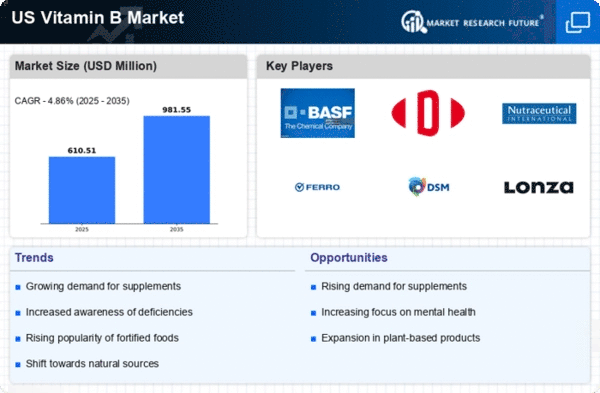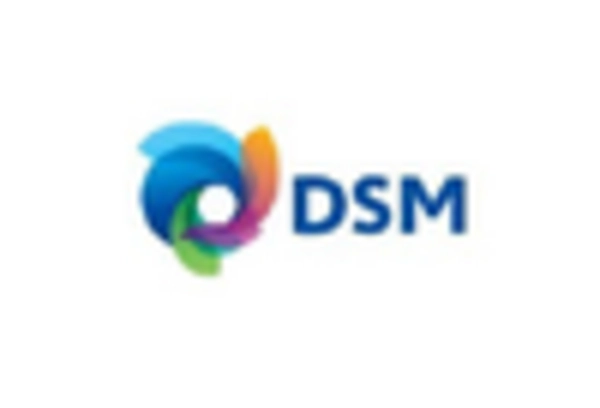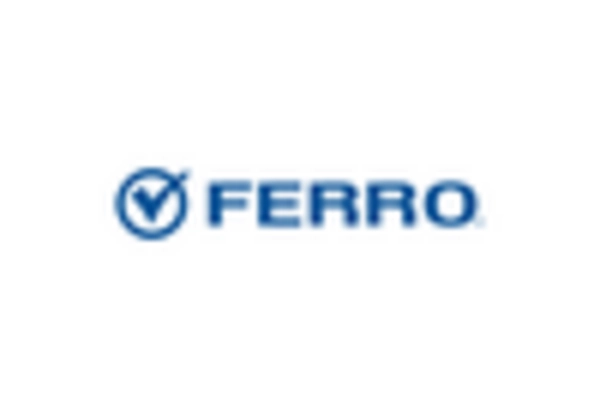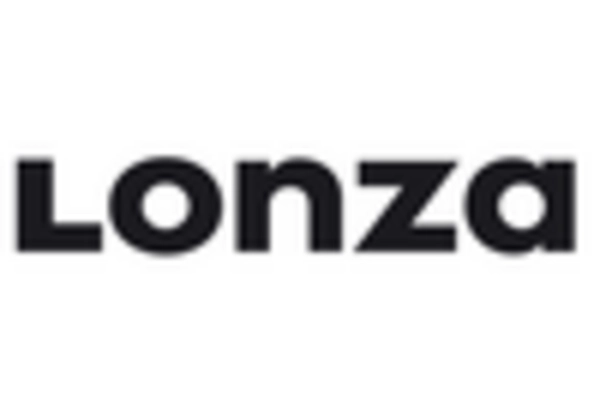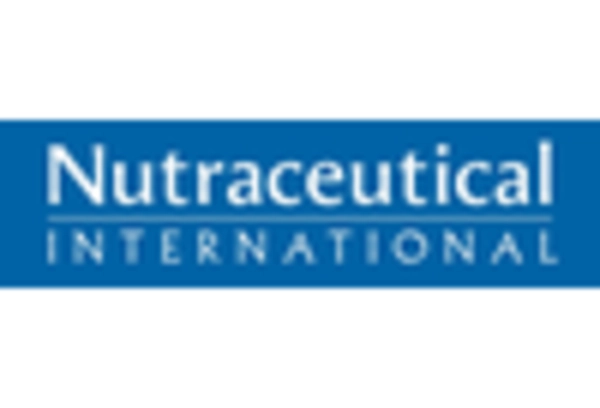Aging Population
The demographic shift towards an aging population in the US is significantly impacting the vitamin b market. As individuals age, their nutritional needs evolve, often requiring increased intake of specific vitamins, including the B-complex group. Research indicates that older adults are more susceptible to deficiencies in vitamin b12 and other B vitamins, which are crucial for maintaining cognitive function and energy levels. Consequently, there is a growing demand for vitamin b supplements tailored to this demographic. The market is expected to expand as healthcare providers recommend vitamin b supplementation to address age-related health concerns. This trend underscores the importance of targeted marketing strategies aimed at older consumers, who are increasingly seeking products that support their health and vitality. The aging population is thus a key driver of growth within the vitamin b market.
Increased Health Consciousness
The vitamin b market is experiencing a notable surge in demand driven by heightened health consciousness among consumers. As individuals become more aware of the importance of nutrition, there is a growing inclination towards dietary supplements that support overall well-being. This trend is particularly evident in the US, where a significant % of the population actively seeks out vitamin b supplements to enhance energy levels and support metabolic functions. The market is projected to grow as consumers prioritize preventive health measures, leading to an increased focus on vitamin b intake. Furthermore, the rise of social media and health influencers has amplified awareness, encouraging consumers to invest in their health through vitamin b products. This shift in consumer behavior is likely to propel the vitamin b market forward, as more individuals recognize the benefits of these essential nutrients.
Rising Popularity of Plant-Based Diets
The vitamin b market is witnessing a transformation due to the rising popularity of plant-based diets among consumers in the US. As more individuals adopt vegetarian and vegan lifestyles, there is an increased awareness of the potential nutritional gaps that may arise, particularly concerning vitamin b12, which is predominantly found in animal products. This shift has led to a surge in demand for fortified foods and supplements that provide adequate levels of vitamin b12 and other B vitamins. Market data suggests that the sales of vitamin b supplements have increased by over 20% in the past year, reflecting this dietary trend. Manufacturers are responding by developing innovative products that cater to the needs of plant-based consumers, thereby expanding their market reach. The growing acceptance of plant-based diets is thus a significant driver for the vitamin b market.
Growing E-commerce and Online Retail Channels
The vitamin b market is benefiting from the rapid growth of e-commerce and online retail channels in the US. As consumers increasingly turn to online platforms for their shopping needs, the accessibility of vitamin b supplements has improved significantly. This shift is particularly relevant in the context of convenience and the ability to compare products easily. Market data reveals that online sales of dietary supplements, including vitamin b products, have surged, accounting for a substantial % of total sales in recent years. Retailers are capitalizing on this trend by enhancing their online presence and offering exclusive deals, which further attracts consumers. The rise of subscription services for vitamin b supplements also indicates a shift in purchasing behavior, as consumers seek hassle-free options for maintaining their health. This growing reliance on e-commerce is likely to continue driving the vitamin b market forward.
Technological Advancements in Supplement Formulation
Technological advancements in supplement formulation are playing a crucial role in shaping the vitamin b market. Innovations in delivery systems, such as liposomal formulations and microencapsulation, enhance the bioavailability of B vitamins, making them more effective for consumers. These advancements are particularly appealing to health-conscious individuals who seek high-quality supplements that maximize nutrient absorption. The US market is seeing an influx of products that leverage these technologies, which could potentially lead to increased consumer trust and loyalty. Furthermore, the integration of personalized nutrition approaches, enabled by technology, allows for tailored vitamin b supplementation based on individual health profiles. This trend indicates a shift towards more sophisticated and effective products in the vitamin b market, likely driving growth as consumers become more discerning about their supplement choices.


